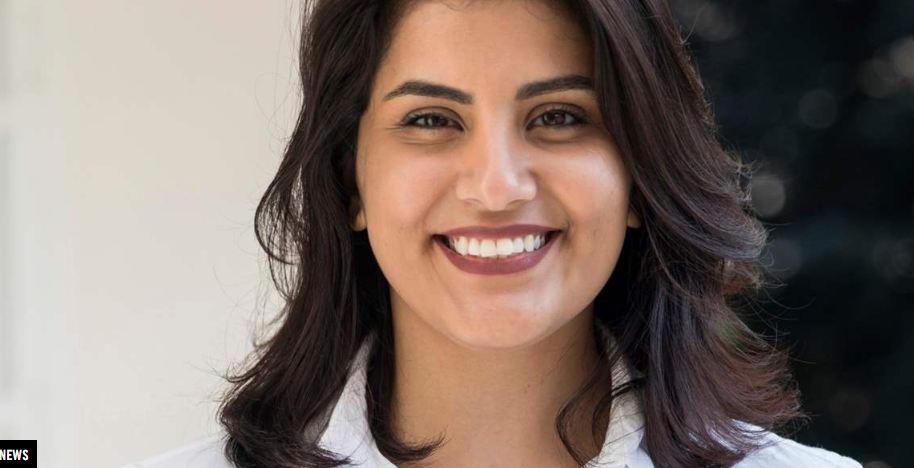Tell King Salman to free Nassima al-Sada
G20 leaders attending this weekend’s virtual summit hosted by Saudi Arabia must take the Saudi authorities to task for their shameless hypocrisy on women’s rights, Amnesty International said today. Women’s empowerment features prominently on Saudi Arabia’s G20 Agenda, despite the fact the activists who spearheaded campaigns for women’s rights are languishing in jail or facing trial.
Amnesty International is urging G20 leaders to join the call for the immediate and unconditional release of Loujain al-Hathloul, Nassima al-Sada, Samar Badawi, Nouf Abdulaziz and Maya’a al-Zahrani, who were arrested in 2018 for their human rights work.
“For Saudi authorities the G20 Summit is critical: it is a moment for them to promote their reform agenda to the world, and show their country is open for business. Meanwhile, Saudi Arabia’s real reformers are behind bars” said Lynn Maalouf, Amnesty International’s Deputy Regional Director for the Middle East and North Africa.
“Instead of playing along with the Saudi government’s whitewashed narrative, G20 leaders should use this summit as an opportunity to stand up for the brave activists whose genuine commitment to women’s empowerment has cost them their freedom.”
In recent years, Saudi authorities have sought to reshape their image through expensive PR campaigns presenting Crown Prince Mohammed bin Salman as a reformer. In June 2018 the ban on women driving was officially lifted, a much-publicized move which was presented as evidence of progress. Yet in the preceding weeks, many of Saudi Arabia’s most prominent advocates for women’s right to drive had been arrested and detained.
Saudi Arabia’s real reformers
Loujain al-Hathloul, one of Saudi Arabia’s most recognizable advocates for the right to drive, was arrested in a May 2018 crackdown on campaigners for women’s rights. She had previously been arrested in 2014 and detained for 73 days. After her release, Loujain al-Hathloul continued to campaign against the driving ban and the male guardianship system, before being arrested in May 2018 along with other women. She has remained in detention ever since, while the other women are still facing trial.
Loujain al-Hathloul has been on hunger strike since 26 October, in protest at the authorities’ refusal to grant her regular contact with her family. She is reported to be feeling weak and exhausted and concerns for her health are growing.
Nassima al-Sada and Samar Badawi were arrested in August 2018. Samar Badawi is an activist who campaigned vocally against the driving ban and against the imprisonment of her ex-husband, human rights lawyer Waleed Abu al-Khair, and her brother, blogger Raif Badawi. Nassima al-Sada has campaigned for civil and political rights, women’s rights and the rights of the Shi’a minority in the Eastern Province of Saudi Arabia for many years.
Nouf Abdulaziz is a blogger and journalist who wrote about a range of human rights issues before her arrest in June 2018. Shortly after her arrest, fellow activist Maya’a al-Zahrani posted a blog calling for her release and was arrested herself a few days later.
All five women remain in detention; some have been tortured, ill-treated and held in solitary confinement.
Meanwhile, since assuming the G20 Presidency, the Saudi authorities have publicized new initiatives on women’s employment opportunities and claims in its Presidency Agenda that it is “strongly committed” to empowering women and girls.
On 10 November the Saudi ambassador to the UK said authorities were considering clemency for the activists ahead of the summit, though this was dismissed by Loujain al-Hathloul’s sister as ‘a PR stunt’.
“These women should not require ‘clemency’ – they have done nothing but peacefully exercise their rights,” said Lynn Maalouf.
Human rights – the missing chapter in Vision 2030
In 2017 Saudi Arabia launched Vision 2030, a plan to diversify the economy and create more opportunities for women and young people
Ahead of this week’s summit, a group of Saudi Arabian activists launched what they called a “People’s Vision for Reform,” outlining 13 human rights issues which they are calling on authorities to act on. Abdullah Alaoudh, one the initiators, described it as “the chapter that we think has been missing in the Saudi Vision 2030.”
The “People’s Vision” calls for the release of all prisoners of conscience, as well as respect for women’s rights and migrants’ rights, abolition of the death penalty, and an end to violations of international law in Yemen.
“This weekend Saudi authorities will talk up the reforms championed by imprisoned activists to garner business opportunities and political acclaim,” said Lynn Maalouf.
“We are urging G20 leaders to speak up against this shameless hypocrisy. The activists who continue to fight for human rights in Saudi Arabia are the true voices for reform, and they should be listened to, not locked up.”













